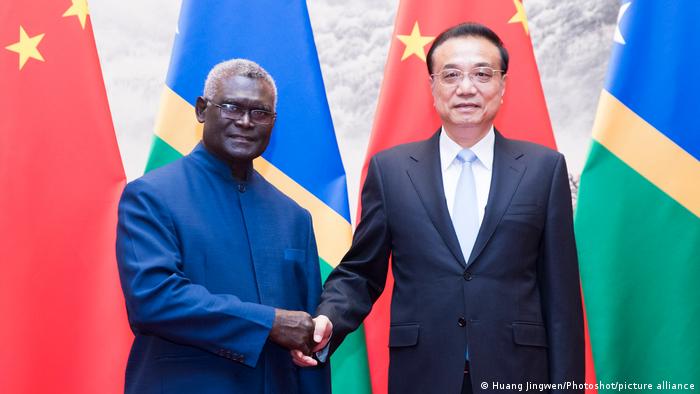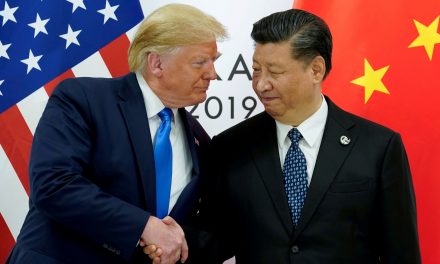By Jianli Yang 04/13/2022
Australia and New Zealand are expressing alarm over a security deal that was being drafted between the People’s Republic of China and the Solomon Islands. The leaked document indicated that China was interested in increasing its military numbers and influence in the Solomon Islands, and as per the terms of this agreement, they would be able to send police or armed forces. The island could also be used as a stopover for China’s forces for tactical replenishments.
As of March 24, the Solomon Islands divulged that the security deal had been signed, following which Australia and New Zealand both raised concerns. The concerns raised by the two countries, who are long-standing supporters of the Solomon Islands, are whether the island nation’s expansion of security agreements with China could destabilize the Pacific region’s security arrangements.
On March 25, Honiara made more details public, such as its intentions of signing off and implementing several deals with China in aviation development and trade expansion. Australia has expressed its concern regarding China’s increased activity and influence in the Indo-Pacific. Australia has often extended aid, such as infrastructure funds for development in the Solomon Islands, to discourage any attempts of China deploying its debt trap policy in the Pacific region. However, Honiara making these deals with China is an indication that the island nation is slowly slipping into China’s embrace. Australian Foreign Affairs Minister Marise Payne expressed her worry about these actions potentially destabilizing and undermining the security in this region with a disclaimer that she respected the islands’ right to make sovereign decisions.
On the other hand, Australian Deputy Prime Minister Barnaby Joyce felt that China’s intentions are to build a naval base in the Solomon Islands to intimidate Australia. China’s intentions are quite clear, and even though it will be a while before any kind of military activity from China would be seen in the Solomon Islands, such intentions are still worrisome. These worries were further echoed by New Zealand Prime Minister Jacinda Ardern when she said that she saw very little need for China’s military presence in the Pacific region and urged leaders of island nations to not look beyond their Pacific family for military and security support.
In 2018, the countries that are members of the Pacific Island Forum signed an agreement to address security issues of the area together called the Boe Declaration. The Solomon Islands had also created waves of commotion when they decided to cut diplomatic ties with Taiwan for China. This created civil unrest within the island nation, leading anti-Asian sentiment and communal violence against Asian people.
The security deal of the Solomon Islands with China has lent People’s Liberation Army, Navy and Air Force a strategic interest to make its presence known in the Pacific region and also gives it easy access to Oceania. The story at this point is all too familiar.
China’s actions, while concerning, did not come as a shock to any world leaders of the Pacific regions because China had been labeled neo-colonizers of the Pacific as early as 2018. In the past many years, China has been strategically providing infrastructural support to islands in the Pacific, specifically for building ports “for trade” fully knowing that these small countries could then later be strong-armed into executing China’s political ambitions and undermining their sovereignty.
All these cases started off the same way as Solomon Islands today — the promise of prosperity. Infrastructure assistance for amenities like pipelines, highways and the internet are all considered excellent schemes by these countries. However, these projects hardly ever succeed in job creation for locals, not to mention the investors are almost always state-owned Chinese companies.
These projects are known to deplete monetary resources of the host country, economically destabilizing the country, which then becomes debt trapped. We have seen this happen time and time again with small countries such as Sri Lanka (Hambantota Port), Pakistan (Gwadar Port), Republic of Djibouti (Port of Doraleh), to name a few.
It seems that despite the best efforts from strong countries like New Zealand and Australia, China has been successful in tightening its grip around the Solomon Islands. Considering previous cases, it is easy to predict the path that this island nation may go down, for the other countries in the region will now be forced to revise their security arrangements with the looming threat of the People’s Liberation Forces.





















